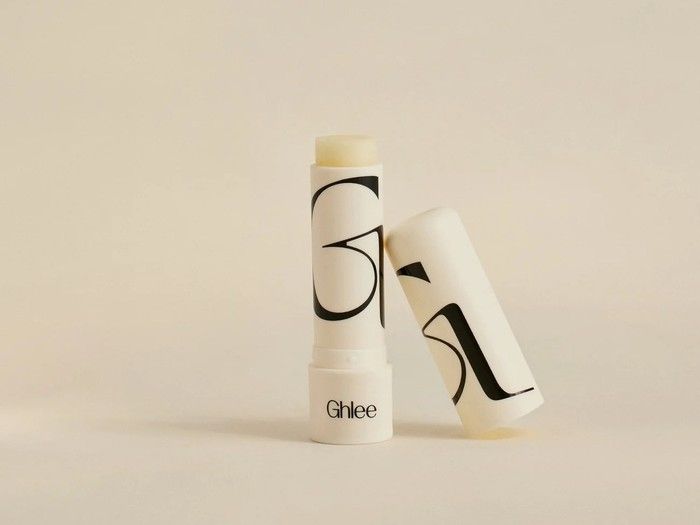Tech
Apple and ad industry clash over iOS 14 popup seeking permission for tracking – 9to5Mac

Apple and the ad industry are once again in conflict, as ad associations object to the way iOS 14 seeks user permission for tracking.
It’s not the first time this has happened – Apple’s adoption of Intelligent Tracking Prevention led to criticism by the ad industry back in 2018 …
Background
Advertisers like to measure the effectiveness of their ads by working out how many people who purchase a product have seen an online ad for it. To do this, a cookie is dropped on the user’s device when they see an ad, and the website where the purchase is made can check for the presence of that cookie.
Conversely, if you visit a website about (eg) drones, the site can drop a cookie, and ad networks like those run by Google and Facebook can check for that cookie and then serve you ads for drones. This is why you often see ads relating to topics you’ve recently been researching.
This type of tailored advertising is more likely to be effective, so ad networks can charge more for displaying personalized ads.
Advertisers don’t know who you are – they don’t know the identity of the person who saw the ad or visited the website – they just know that the same person (actually, device) did both.
iOS 14 approach to seeking permission for tracking
In iOS 14, if an app wants to show tailored ads, it must display a popup asking permission from the user.
Reuters reports that the complaint stems from Apple not adopting a permission standard required by law in Europe. This means that apps with European users will need to seek the same permission twice, once with a GDPR-compliant request, and again with Apple’s request. Advertisers fear this will make it seem a bigger deal than it is, and lead to more users refusing permission.
Sixteen marketing associations, some of which are backed by Facebook Inc and Google, faulted Apple for not adhering to an ad-industry system for seeking user consent under European privacy rules. Apps will now need to ask for permission twice, increasing the risk users will refuse, the associations argued.
Facebook and Google are the largest among thousands of companies that track online consumers to pick up on their habits and interests and serve them relevant ads.
Apple rejects the criticism because it already offers a tool to help advertisers measure effectiveness.
Apple engineers also said last week the company will bolster a free Apple-made tool that uses anonymous, aggregated data to measure whether advertising campaigns are working and that will not trigger the pop-up.
“Because it’s engineered to not track users, there’s no need to request permission to track,” Brandon Van Ryswyk, an Apple privacy engineer, said in a video session explaining the measurement tool to developers.
Attitudes to personalized ads vary, some preferring relevant ads to generic ones, while others object to what they consider a privacy breach.
I’ve argued in the past that online advertising is a hot mess, and that we really need agreed standards laid down in law.
I’m personally of the view that I don’t mind anonymised tracking. I’m a decisive shopper, so generally it only results in me being shown ads for things I’ve recently bought, but I have nothing against the principle. Others disagree, and strongly object to the practice. But I don’t have strong views either way: let’s allow it or ban it – the important thing is to agree in law what is and isn’t allowed.
With ad standards legislation in place, we can finally get rid of the most obnoxious forms of advertising, and put an end to the war of escalation between ever-more aggressive brands and ever more fed-up consumers.
Part of this would involve giving websites greater control over the ads inserted by ad networks like Google. Currently, for example, you will occasionally see scam ads on sites like ours because they make it through Google’s checks. We can only block them reactively, when we spot them or a reader reports them. Legal controls would make them far less likely to make it into an ad network in the first place.
FTC: We use income earning auto affiliate links. More.
Check out 9to5Mac on YouTube for more Apple news:
Tech
Meta Expands VR Operating System to Third-Party Hardware Makers – MacRumors


Facebook parent company Meta today announced the upcoming expansion of Meta Horizon OS, a virtual and augmented reality operating system that will be available to third-party hardware manufacturers that want to design their own headsets.
Right now, Meta sells the Quest line of headsets, but the company wants to provide the software for third-party VR and AR products in the future, much like Microsoft offers Windows for all manner of third-party PCs.
Meta Horizon OS is the mixed reality operating system that Meta created for its own Quest headsets, and it has support for eye, face, hand, and body tracking along with passthrough, spatial anchors, scene understanding, and other features. There is a “social layer” that will allow the identities, avatars, and friends of users to move between virtual spaces on different devices.
According to Meta, multiple companies are working on devices that will use Meta Horizon OS. ASUS ROG is developing a performance gaming headset and Lenovo is working on mixed reality devices for productivity, learning, and entertainment. Meta says that it is also creating a limited edition version of Meta Quest in partnership with Xbox.
With the expansion of Meta Horizon OS to third-party hardware manufacturers, Meta is making it easier for any developer to ship VR software on the platform by removing barriers between the Horizon Store and App Lab.
By creating an operating system that can be used by other hardware manufacturers, Meta is inserting itself into the growing AR/VR ecosystem and creating opportunities for it to outpace Apple in mixed reality development. Apple launched the Vision Pro headset earlier this year, but software is lacking given the high price and limited distribution of the device.
According to a report from earlier today, interest in the Vision Pro is already waning at Apple’s retail locations with fewer people requesting demos.
Tech
Brian's Randoms from Sea Otter 2024 – Pinkbike.com


There have been more launches in the past two weeks than any other two-week period I can remember since I started sweeping floors at Freedom Bike Shop back in 2001. Yes, that means I’m very old. It also means that after several years of delayed product releases, some brands have finally cleared out enough inventory to share what they’ve been working on.
The Pinkbike team came down to Sea Otter this year with mixed expectations, and there were definitely some weird vibes. Everyone is concerned for the remaining Kona employees, and more than one brand expressed that their plan is to #surviveto2025. But overall we loved catching up with everyone, the weather was great, and somehow there was even more gear to cover. The industry might be going through a tough time, but ultimately riding bikes is still ridiculously fun and bike tech is as interesting as ever.
And on that note, here are a few of the random things that caught my eye during the show.
OutsideBrendan works smarter not harder, and dog Bubbie(?) is awesome.
I mistakenly thought it was a garage project kind of thing, but it’s a real brand with a promo video and everything.
And with that, it’s time to face my expense report. Until next year, Sea Otter!
Tech
We tried these three beauty products this week. Here are our thoughts – Vancouver Sun


Reviews and recommendations are unbiased and products are independently selected. Postmedia may earn an affiliate commission from purchases made through links on this page.
Article content
Skin Caviar Eye Lift Serum
They say: A luxury serum that firms, smooths and lifts the eye area. The dual-chamber product features the Swiss skin-care brand’s Cellular Complex to ‘restore youthfulness to the eye contour,’ along with a blend of caviar components.
We say: Our tester applied one pump of this serum to the eye area daily. Gently dabbed onto skin, the serum gave an instant boost of hydration. The liquid-serum formula was lightweight and non-sticky, providing an easy base for any additional skin-care or makeup products. With use, our tester reported fine lines and firmness were noticeably improved.
Article content
$760 | Holt Renfrew, holtrenfrew.com
Marc Anthony
Strictly Curls Curl Envy Leave-In Conditioner
They say: A leave-in hair conditioner formulated for curly hair. Boasting strand-smoothing ingredients such as avocado oil, Vitamin E and shea butter, the spray can be used on course, fine, thick or thin curls to promote softness, fight frizz and lock in hydration.
We say: Our tester spritzed this conditioner on her ultra-curly, frizz prone coif. The spray format makes application easy and mess-free. Used both as a de-tangler on freshly washed hair and as a curl pick-me-up in between washes, she found it left curls looking formed, smooth and not stiff.
$12.97 | Mass retailers, walmart.ca


Ghlee
Lip Balm
They say: A nourishing lip balm that features antioxidant-rich ghee, along with mango seed butter and Vitamin E to hydrate lips. Available in Original, Rose, Chai, Mango-Papaya and Mint.
We say: This lip balm gives a dose of smoothing hydration with one swipe. Our tester loved the rose iteration, which boasted the scent of a fresh bloom. It’s the kind of balm you keep reaching for in your bag, she reports.
Share this article in your social network
-
Business12 hours ago
Honda to build electric vehicles and battery plant in Ontario, sources say – Global News
-



 Science13 hours ago
Science13 hours agoWill We Know if TRAPPIST-1e has Life? – Universe Today
-
Investment16 hours ago
Down 80%, Is Carnival Stock a Once-in-a-Generation Investment Opportunity?
-



 Health13 hours ago
Health13 hours agoSimcoe-Muskoka health unit urges residents to get immunized
-
News18 hours ago
Honda expected to announce multi-billion dollar deal to assemble EVs in Ontario
-
Art23 hours ago
‘Luminous’ truck strap artwork wins prestigious Biennale prize in first for New Zealand – The Guardian
-



 Sports23 hours ago
Sports23 hours agoJets score 7, hold off Avalanche in Game 1 of West 1st Round – NHL.com
-



 Science18 hours ago
Science18 hours agoWatch The World’s First Flying Canoe Take Off




